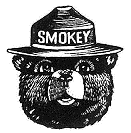United States Department of Agriculture, Forest Service, National Agroforestry Center

United States Department of Agriculture, Forest Service / University of Nebraska-Lincoln: Faculty Publications
Document Type
Article
Date of this Version
1996
Abstract
This study analyzed spatial location patterns of Cercocarpus ledifolius Nutt. (curlleaf mountain mahogany) plants, classified as current-year seedling, established seedling, juvenile, and immature individuals, at a central Nevada study site. Most current-year seedlings were located in mahogany stands in which large, mature individuals had the greatest abundance. These stands had greater litter cover and a thicker layer of litter than areas with few current- year seedlings. Most established young Cercocarpus were located in adjacent Artemisia tridentata ssp. vaseyana (mountain big sagebrush) communities, or in infrequent canopy gaps between relatively few large, mature Cercocarpus. We discuss potential roles of plant litter, root growth characteristics, nurse plants, and herbivory in the establishment and renewal of Cercocarpus communities.


Comments
Published in Great Basin Naturalist 56(3), © 1996, pp. 261-266.